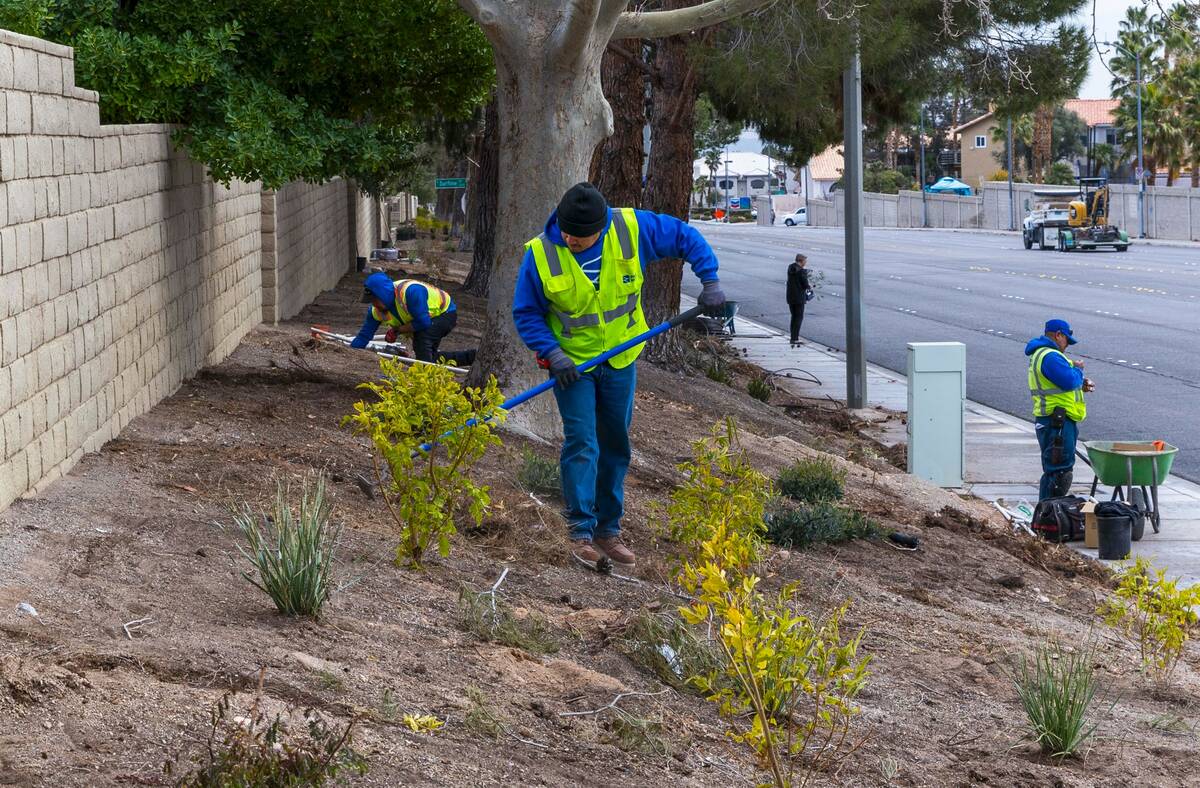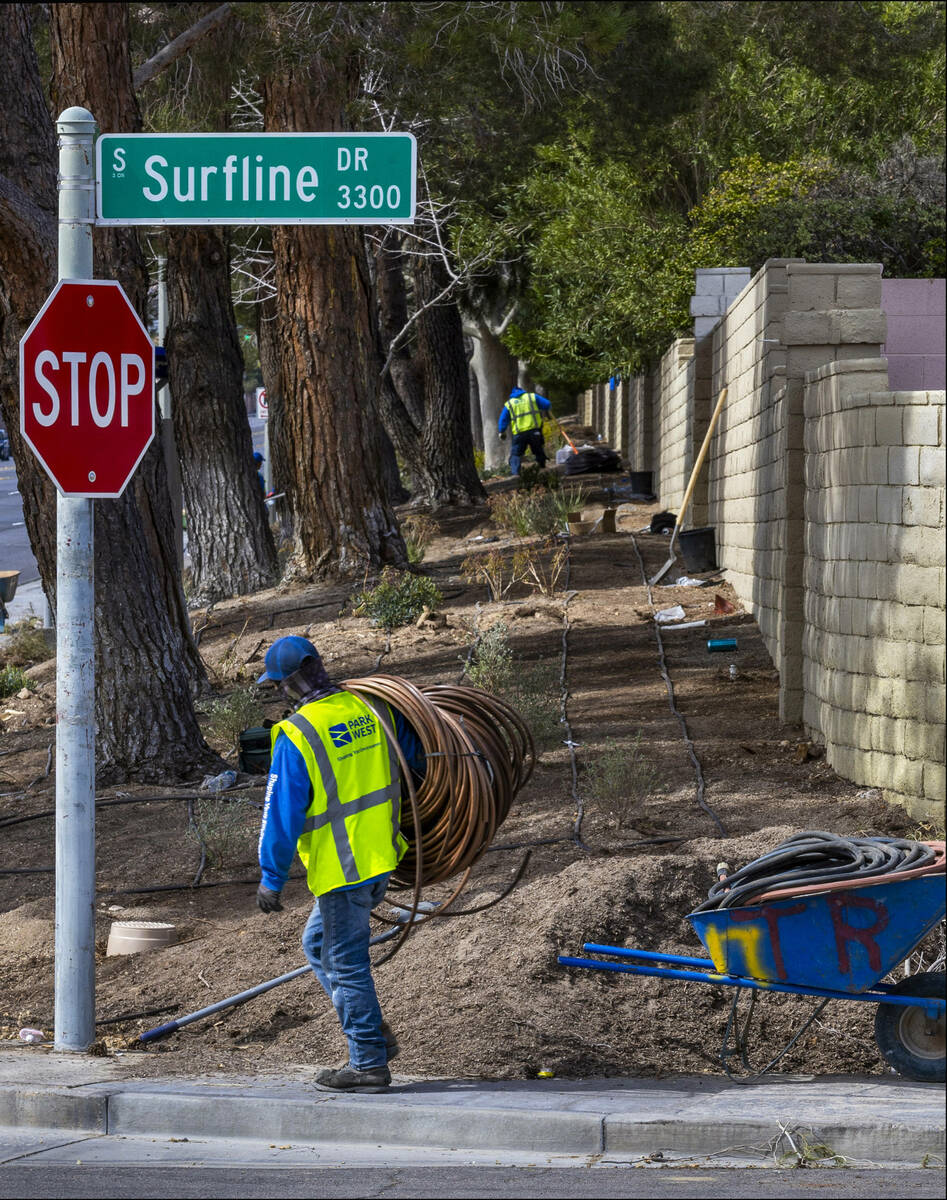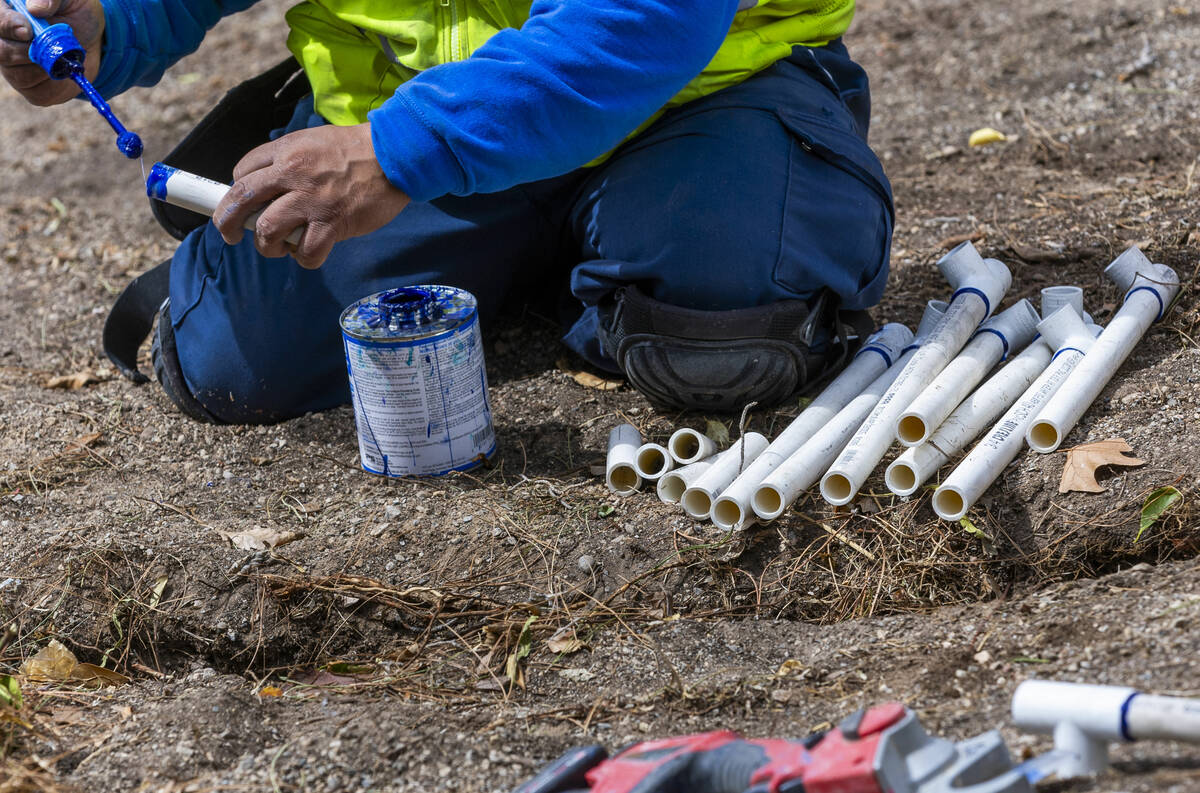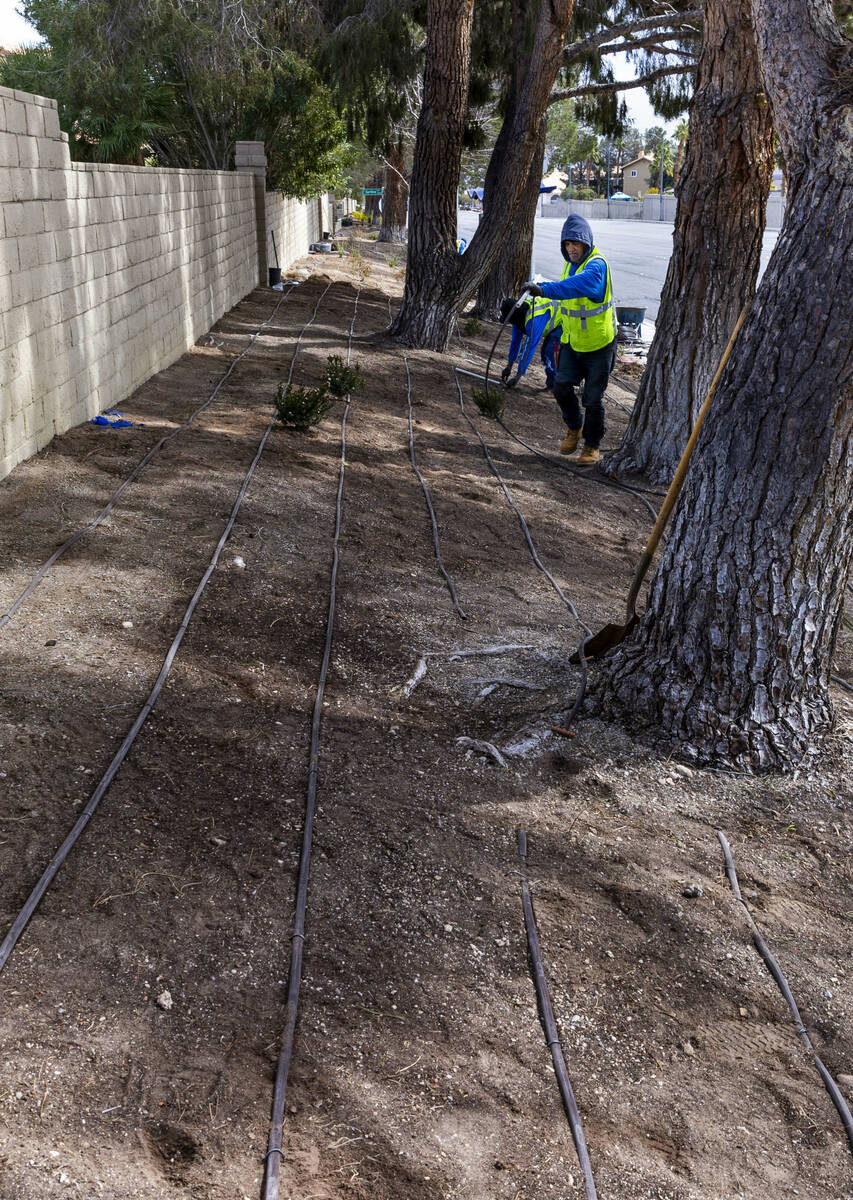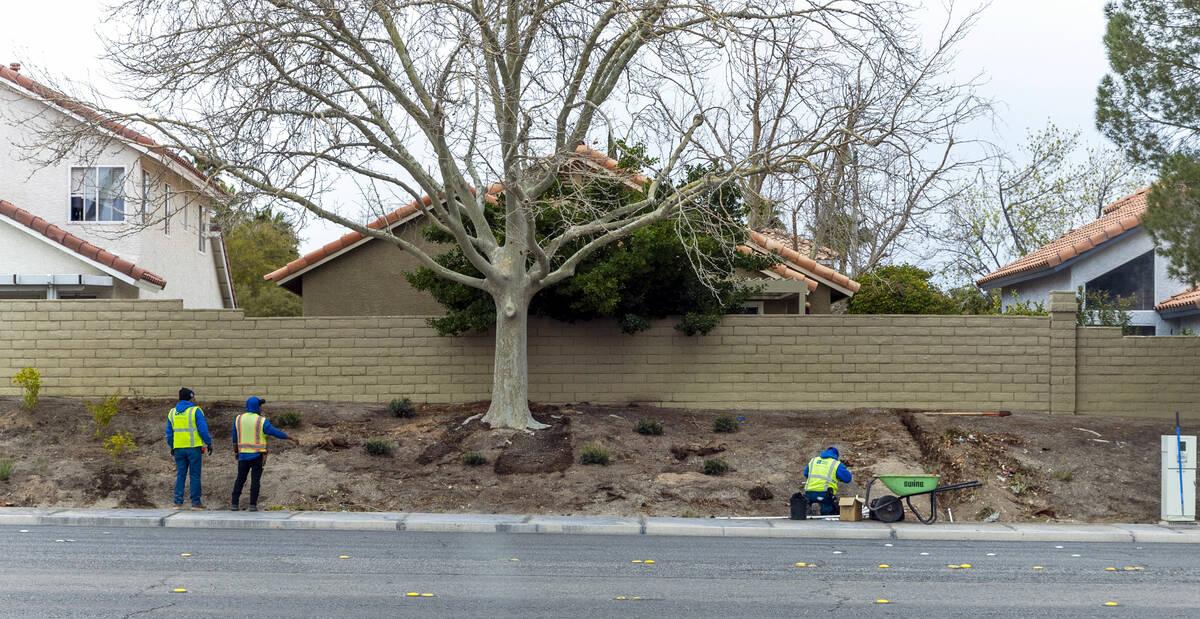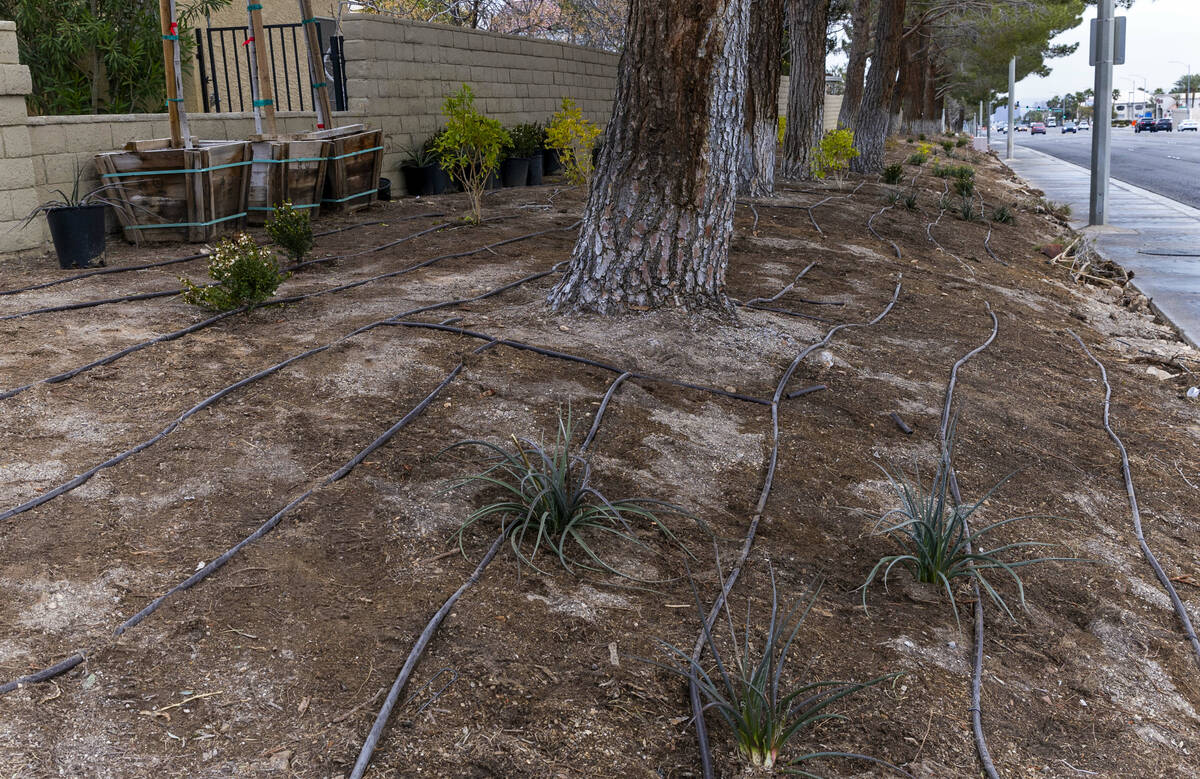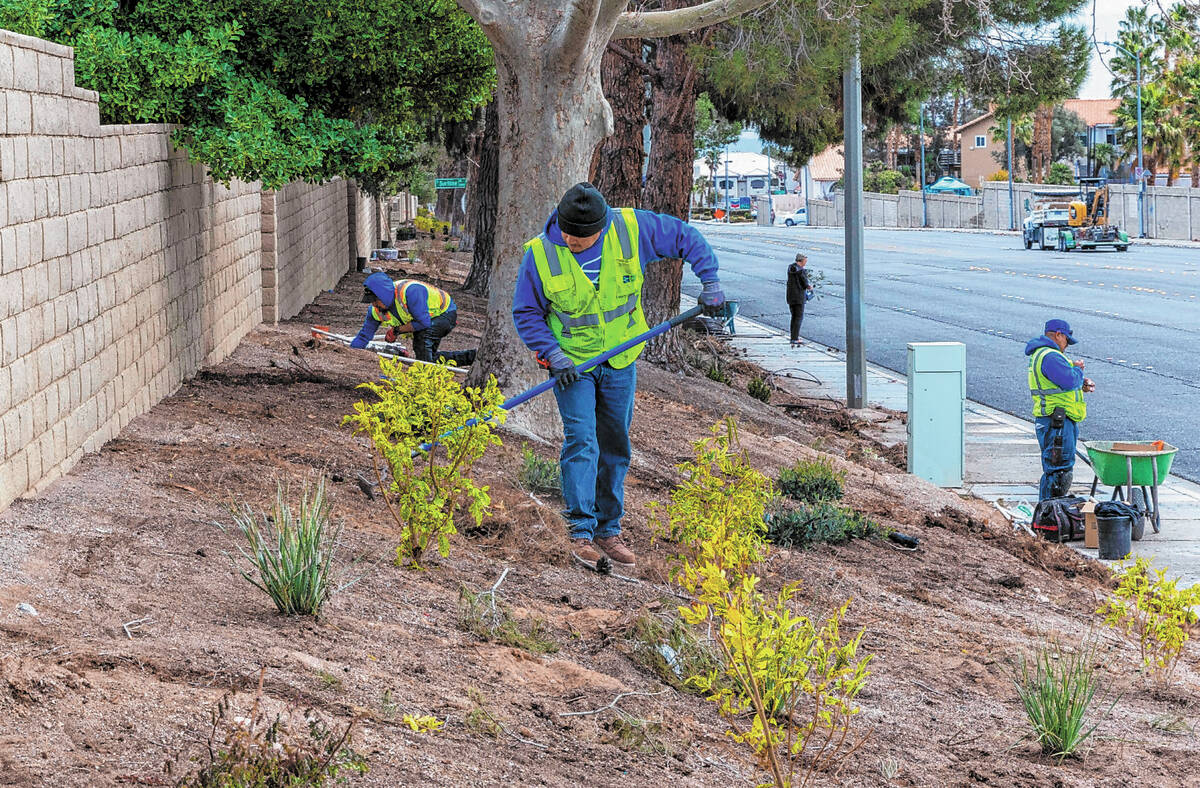Fined for not fixing leaks? Fee money floods water district’s coffers
The Las Vegas Valley Water District made more than $32 million in its first year of charging its biggest water users punitive fees, data obtained by the Review-Journal shows.
In the 2023-2024 fiscal year, the district’s budget totaled about $721 million. This means that the fees — entirely earmarked for conservation programs — provided a significant boost to an agency that employs some of the highest-paid government workers in the state.
Water district board members framed the controversial measure, implemented at the beginning of 2023, as a last-ditch effort to encourage the top 10 percent of Las Vegas water users to fix leaks and take part in turf removal and other water-saving programs.
However, data shows the number of customers fined by the district hasn’t declined every month as intended. The lowest number of customers hit with a fee came in October, at roughly 16,000; but in every month since then, more than 20,000 customers have been charged.
J.C. Davis, the water district’s director of customer care, told the Review-Journal that the most telling metric is that about half of the customers fined in 2023 were only fined once or twice. That means many customers are addressing water use on their properties, he said.
“What I am looking for is: Are people getting out of the club quickly?” Davis said. “And when we see about half of people only get it once or twice — that’s what I want to see increase over the course of time. In a perfect world, would we want it to get to zero? We would. Is that a reality? I don’t think so.”
Fees pile up as district claims water savings
Mega-drought is only intensifying in the West, and programs like this one are aimed at making the most out of Nevada’s small, 300,000 acre-feet allowance of Colorado River water as population in the valley grows.
Nevada, along with California and Arizona, will likely face cuts in its share of Colorado River water as negotiations heat up across the basin to update guidelines before the end of 2026.
Water managers in Nevada have already been planning for a worst-case scenario — shrinking the state’s water use to a sustainable level amid threats to the Colorado River. Las Vegas and Southern Nevada have gained national acclaim from water experts for taking bold actions to achieve that goal.
At a board meeting in early March, water district officials estimated the program saved 9,511 acre-feet, or 3.1 billion gallons of water in 2023. Water use last year across Nevada came in at 188,000 acre-feet, or about 89 gallons per person per day.
Excessive use fees are billed according to thresholds that vary by season. For every 1,000 gallons used over that month’s limit, a $9 charge will be added to water bills. On average, about 6 percent of the water district’s customers were charged a fee last year.
Davis believes excessive use fees have alerted many Las Vegans to the importance of fixing leaks on their property as part of successfully managing the region’s water supply, he said.
“We just want you to be a responsible manager of the most scarce resource we have in Southern Nevada,” Davis said.
The excessive use fees program led Las Vegas resident Laura McSwain to create an advocacy group last year — the Water Fairness Coalition, which has since positioned itself as a watchdog and a fixture at local water meetings.
McSwain, president of the neighborhood association in McNeil Estates, said the program is too stringent, and she said she’s heard from many homeowners who feel the same.
The fees have impacted her mother, she said, who saw her bill almost double in some months despite being on a fixed income.
It’s hard to discern the true goals of the excessive use fees program as more homes are built and more people pour into the valley, McSwain said.
“We’re talking about requiring that people reduce their water consumption so it can be given to somebody who doesn’t even live here yet,” she said.
Funds to fix leaks across Las Vegas
One initiative the excessive use fees will fund is a leak repair reimbursement program. The water district will reimburse its customers 50 percent of the cost of repairs up to $1,000, hopefully preventing those customers from being fined again.
It’s also working to secure nonprofit partners for a program that will help low-income Las Vegans with the cost of leak repairs. All of the funding is designated for conservation programs, Davis said.
The water district will, on a case-by-case basis, reverse fees if a leak is dealt with in a timely manner.
In the future, Davis said, he would like to see only those who choose to ignore their water-guzzling tendencies be affected by the fees. Those who want to fix leaks but can’t afford to shouldn’t have to decide whether to pay their bill or make necessary repairs, he said.
“Most people are already doing the right thing,” Davis said. “This is our way of being able to get the people who’ve chosen not to do their part for conservation to do so.”
Contact Alan at ahalaly@reviewjournal.com. Follow @AlanHalaly on X.



